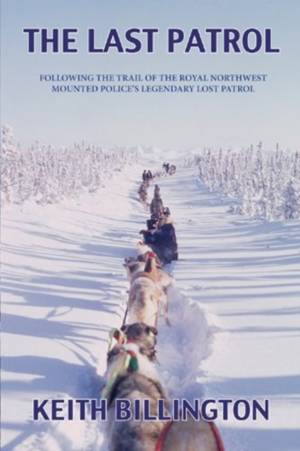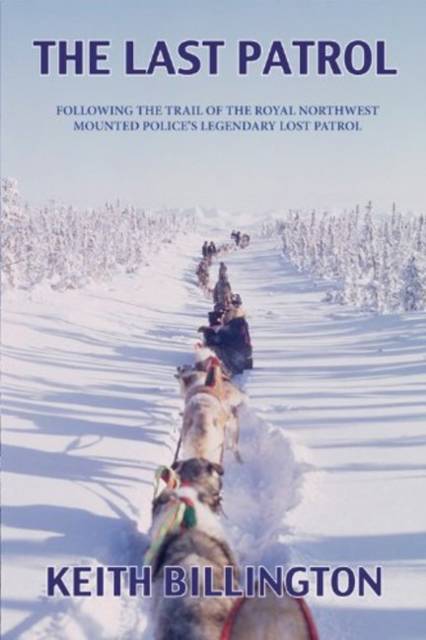
- Retrait gratuit dans votre magasin Club
- 7.000.000 titres dans notre catalogue
- Payer en toute sécurité
- Toujours un magasin près de chez vous
- Retrait gratuit dans votre magasin Club
- 7.000.000 titres dans notre catalogue
- Payer en toute sécurité
- Toujours un magasin près de chez vous
The Last Patrol
Following the Trail of the Royal Northwest Mounted Police's Legendary Lost Patrol
Keith Billington
Livre broché | Anglais
18,45 €
+ 36 points
Description
In Keith Billington's new book, "The Last Patrol," he shares one of the most tragic stories of the far north. It was a quiet December morning in 1910 when Inspector Fitzgerald and his crew left Fort McPherson, Northwest Territories, on a dog team patrol to Dawson City, Yukon. Their departure was without fanfare, and after a brief handshake and a salute, the men pulled out of the village and onto the frozen Peel River. Sadly, these four officers of the Royal Northwest Mounted Police would be remembered as the Lost Patrol of 1911. During the grueling 764-kilometre journey, after running out of supplies and experiencing brutally cold weather, they faced starvation and eventually froze to death. Sixty years later, Keith Billington, an outpost nurse working in Fort McPherson, organized a re-enactment of the historic trip using dog teams before Dempster Highway was built. Intrigued by the story of the Lost Patrol, he recruited ten men to join him. Nine of his companions were experienced Gwich'in men, two of whom had previously made the trip. Unlike the original patrol, Billington's departure attracted much media attention. On February 15, 1970, television crews and dignitaries from different agencies all descended on Fort McPherson to document the start of Billington's "Last Patrol." Some wished them well and some were convinced this expedition might also end in disaster, or that they would be forced by harsh conditions to abandon their journey and return home. Billington weaves together these two stories, revealing the details behind both the men who lost their lives and the men who risked their lives to commemorate the sacrifice made by Fitzgerald and his team. This gripping story illustrates the commitment and determination of the men of the Royal Northwest Mounted Police and is a tribute to the legacy of the Gwich'in people who lived and survived in this beautiful but inhospitable land.
Spécifications
Parties prenantes
- Auteur(s) :
- Editeur:
Contenu
- Nombre de pages :
- 192
- Langue:
- Anglais
Caractéristiques
- EAN:
- 9781927575208
- Date de parution :
- 15-10-13
- Format:
- Livre broché
- Format numérique:
- Trade paperback (VS)
- Dimensions :
- 150 mm x 201 mm
- Poids :
- 272 g







